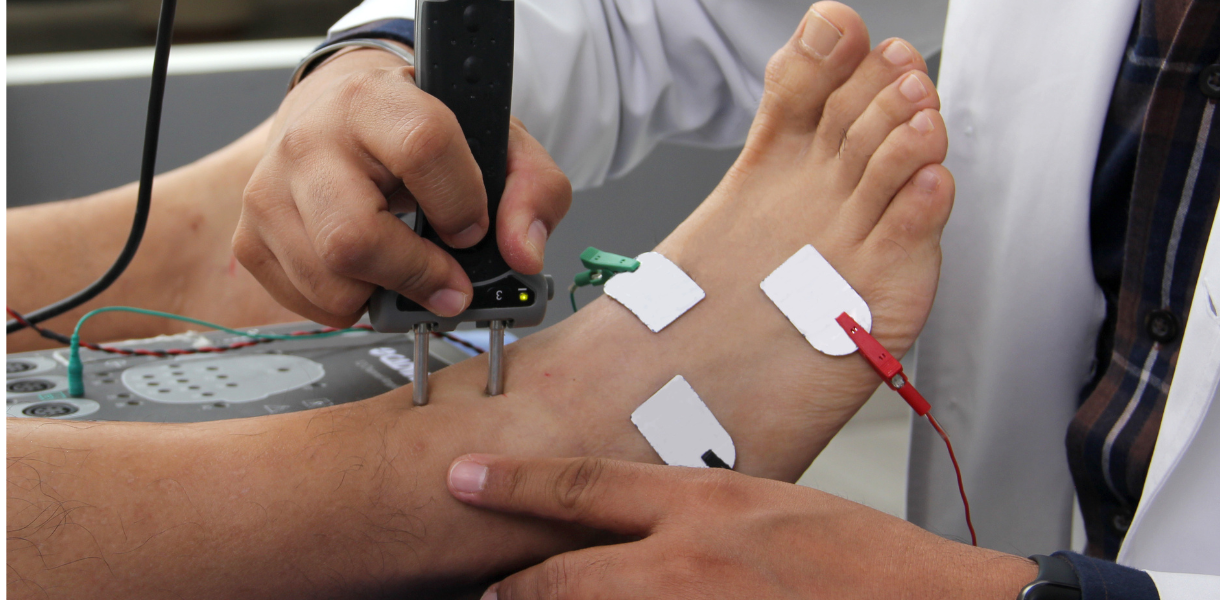Nerve Conduction Study (NCS)
Evaluating Nerve Function with Precision
At Neurology Associates P.C., we offer in-office Nerve
Conduction Studies (NCS) to help diagnose nerve damage or
dysfunction. This painless, highly informative test helps us
understand the health of your peripheral nerves and is often
used to evaluate symptoms like numbness, tingling, weakness, or
pain.
Led by Dr. Virendra V. Ranevde, MD, board-certified neurologist,
our team provides NCS testing with expert interpretation and
same-day follow-up when needed.
What is a Nerve Conduction Study?
A Nerve Conduction Study (NCS) is a diagnostic test that
measures how quickly electrical signals travel through your
nerves. Small electrodes are placed on the skin and gentle
electrical pulses are applied to assess how well your nerves are
working.
This test is often combined with Electromyography (EMG) when
necessary, although NCS can be done independently.
When is NCS Recommended?
NCS is commonly used to evaluate:
- Carpal Tunnel Syndrome
- Peripheral Neuropathy (diabetic or other causes)
- Radiculopathy (pinched nerve in the spine)
- Sciatica or lumbar nerve root issues
- Guillain-Barré Syndrome or CIDP
- Nerve injury after trauma or surgery
- Tingling, numbness, or unexplained limb weakness
What to Expect During the Test
-
Electrodes will be placed on your skin over the nerve areas
being tested
-
A small, brief electrical impulse will be delivered to
stimulate the nerve
-
The speed and strength of the nerve’s response will be
recorded
-
Testing usually takes 30 to 60 minutes, depending on how many
areas are being studied
The test is safe, and most patients describe only mild, brief
discomfort.
Why Choose Neurology Associates P.C. for NCS?
- Performed in-office – no need for hospital referral
-
Interpreted by a board-certified neurologist with decades of
experience
- Fast scheduling and prompt results
- Integrated into your overall care plan
-
Personalized explanations and treatment guidance after testing
After the Test
Once the test is completed:
- Dr. Ranevde will review and explain your results
-
You’ll receive a diagnosis or next steps for additional
evaluation or treatment
-
If needed, treatment plans such as physical therapy,
medications, or further testing will be discussed
